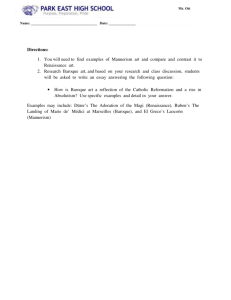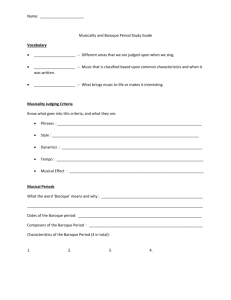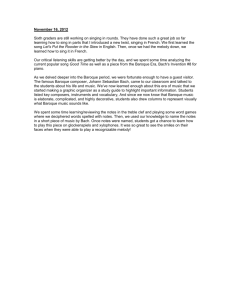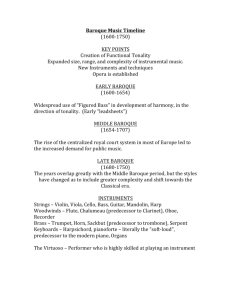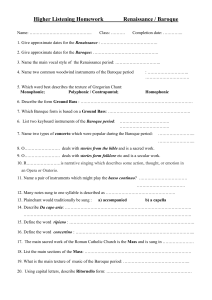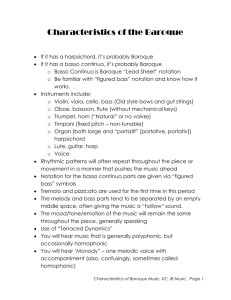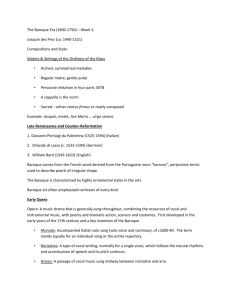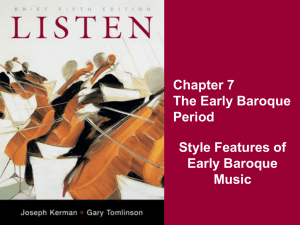Chapter Five: Baroque Art and Music
advertisement
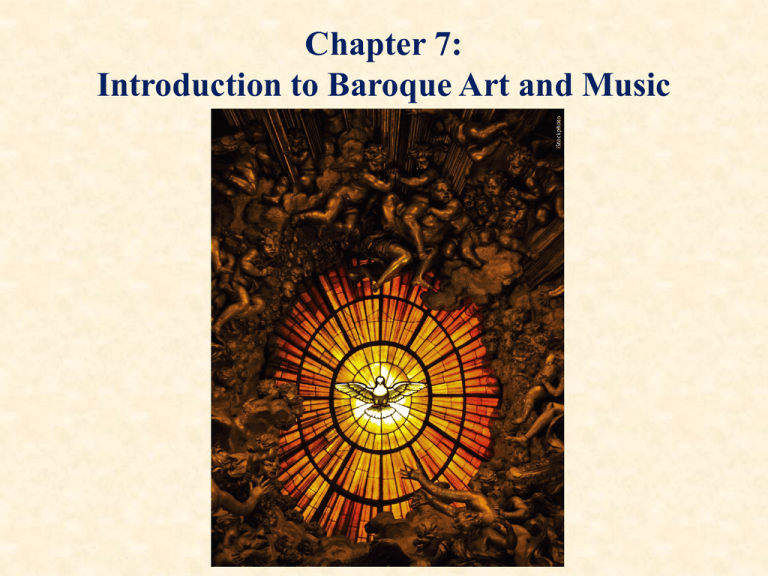
Chapter 7: Introduction to Baroque Art and Music The Baroque Era (1600-1750) • First appeared in Italy • Baroque: Baroque Architecture and Music Baroque Music • Grandiose music composed for such vast spaces • Compositions for “colossal” forces • Highly ornamental melody above a solid chordal foundation • Doctrine of the Affections: Arcangelo Corelli – Sonata for Violin and Basso Continuo, Opus 5, No.1 • Bass provides the structural support while the violin adds elaborate decoration above Baroque Painting and Music Characteristics of Baroque Music • Remarkable variety of musical style • Introduction of many new musical genres: – Opera, cantata, oratorio, sonata, concerto, and suite • Two elements remain constant Expressive Melody • Use of soloist to communicate raw individual emotion • All voices not created equal S A T B --------------------------------------------------------------------------------------------------------------------------------------------------------------------------------------------------------------------------------- Monody: “Solo song” Rock-Solid Harmony • Basso continuo (continual bass): • Figured bass: Elements of Baroque Music Harmony • Chord progressions that we hear today originated in the Baroque • Music built around stock chord progressions • Modern “two-key” system: Major and Minor Elements of Baroque Music Rhythm • Meter and certain rhythmic patterns are established at the beginning and continue to the end • Strong recurring beat (groove) Elements of Baroque Music Dynamics • Use of two basic terms: piano (soft) and forte (loud) • Terraced dynamics:
